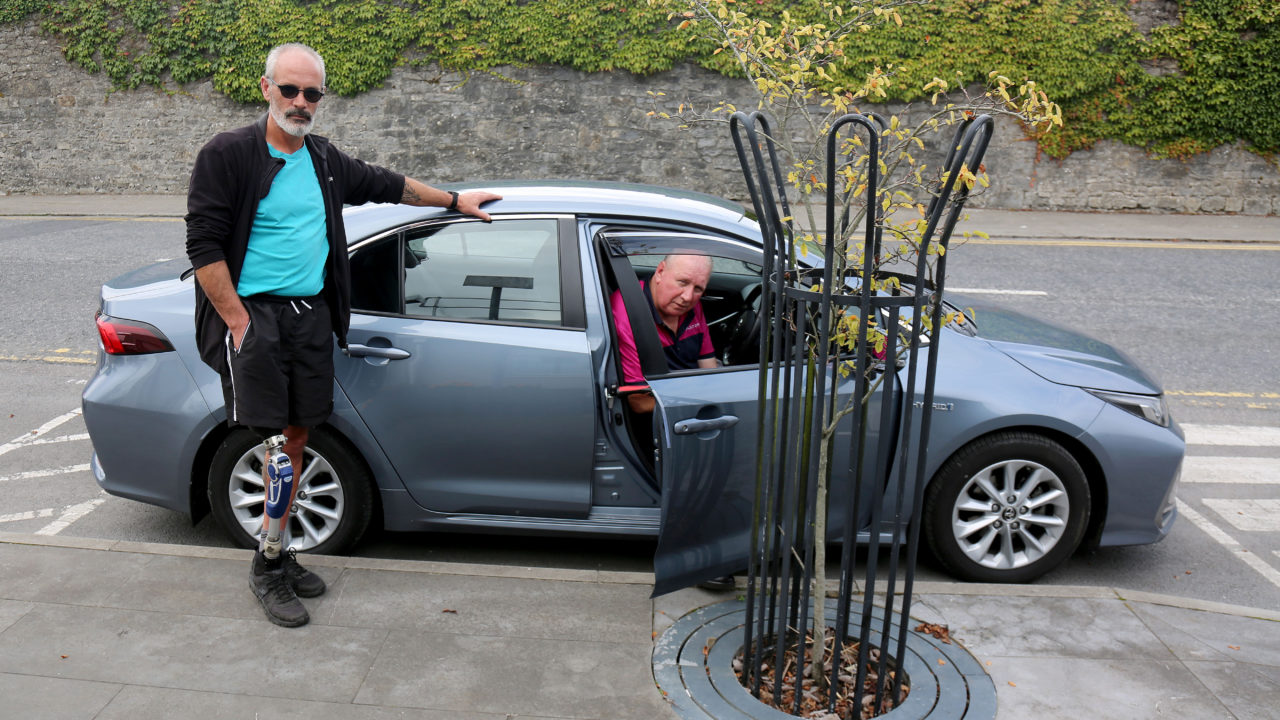A Co. Galway farmer who chairs the new group – Physical Impairment Ireland – has called for more thought to be given to the issue of disabled parking.
Peter Gohery, who has a 150ac tillage farm at Eyrecourt, also works as an advisor in the area of health and safety. He lost his leg in an accident involving a PTO shaft at his farm in 2009.
One of the biggest issues the new group faces, he said, is access to disabled parking spaces.
“Everyone says that we have the blue badge and thinks it’s free, but we have to pay €35 for it every two years,” said Peter.
“Then we face the problems of not being able to access these spaces because they are often occupied by able-bodied drivers or because they are badly designed.
“Some people try to excuse their actions by saying they were only running into the shop for a few minutes. In other cases, motorists are using a disabled badge belonging to someone they know.
“In these cases, the next available disabled parking space is often too far away for the person with mobility issues,” he continued.
“Where able-bodied motorists use spaces designated for people with disabilities, they should face a fine of €150 rather than a parking fine from a warden or garda of €40.
“And where people allow others to use their badges, they should face fines of up to €2,000 or three months’ imprisonment, with their card confiscated and a fine for having to get it reissued.”
Badly designed disabled parking
There are also many examples of badly designed disabled spaces, according to the Galway farmer.
“One case we know of involved a tree being planted which prevented the door of the vehicle from being opened wide,” Peter said.
“There has to be adequate space around these vehicles and they need to be marked out properly. Sometimes another car will squeeze in between the disabled driver’s vehicle and the vehicle behind it.”
A harder line needs to be taken with offenders and money gathered in fines should be ringfenced for the upkeep of the disabled parking spaces, Peter contended.
Physical Impairment Ireland’s vision is to enhance quality of life for people with physical impairments through education and campaigning.
“We wanted to have people with disabilities speaking on behalf of people with disabilities. Often able-bodied people don’t understand what people with mobility issues are going through,” Peter said.
Accessibility is covered under the UN convention on the rights of persons with disabilities, he said.
